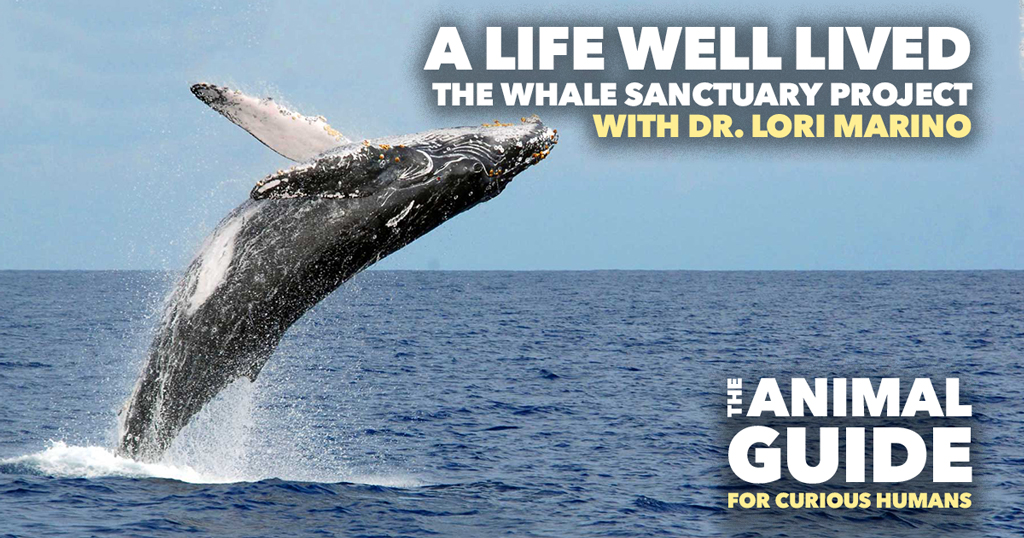We know a great deal about cetaceans (whales, dolphins and porpoises) thanks to the remarkable work of scientists all over the world. They have been studied in their natural habitat as well as in captivity. As a result, scientists have identified the significant adverse consequences cetaceans experience in captivity in aquariums and other facilities. Their captivity is usually just for the purpose of entertaining us humans and to make profit for a few people.
Our guest today is world renowned neuroscientist Dr. Lori Marino. Lori is an expert in animal behaviour and intelligence, particularly marine mammals held in captivity. She is the President and co-founder of the Whale Sanctuary Project, a science-based non-profit organization working to end the exploitation of whales and dolphins and creating sanctuaries for those who have been in captivity. The Whale Sanctuary Project is currently preparing a sanctuary site in Port Hilford, Nova Scotia. Lori will explain the physical, psychological and mental harms experienced by cetaceans in captivity and the work the Whale Sanctuary Project is doing to create sanctuaries for captive cetaceans so they can live out the rest of their lives in a healthy way.
If you follow the news, you may have noticed that the number of stories involving whales and dolphins have been increasing. Unfortunately, many of these stories are sad ones, like the report of almost 500 pilot whales being found dead after being beached on an island in New Zealand. Scientists are still trying to understand the cause of that tragedy. Or the many stories of whales and dolphins getting caught in ghost fishing gear left behind by the fishing industry. But there are also many wonderous stories of our interaction with whales, dolphins and porpoises. Like the group of dolphins who protected swimmers in New Zealand from a great white shark. Or the stories of humpback whales saving seals and others mammals from orcas. These animals are intelligent, complex beings with language, culture, and social skills.
We know a great deal about cetaceans the order of marine mammals that includes (whales, dolphins and porpoises) thanks to the remarkable work of scientists all over the world. They have been studied in their natural habitat as well as in captivity. As a result, scientists have identified the significant adverse consequences cetaceans experience in captivity. Their captivity is usually for the sole purpose of entertaining us humans and to make some people some money.
Our guest today is world renowned neuroscientist Dr. Lori Marino. Lori is an expert in animal behaviour and intelligence, particularly marine mammals held in captivity. She is the President and co-founder of the Whale Sanctuary Project, a science-based non-profit organization working to end the exploitation of whales and dolphins and creating sanctuaries for those who have been in captivity. The Whale Sanctuary Project is currently preparing a sanctuary site in Port Hilford, Nova Scotia. Lori has appeared in several films and television programs, including the 2013 documentary Blackfish about killer whale captivity, Unlocking the Cage, the 2016 documentary on the Nonhuman Rights Project, and Long Gone Wild, the 2019 documentary that picks up where Blackfish left off.
Lori will explain the physical, psychological and mental harms experienced by cetaceans in captivity and will talk about the work the Whale Sanctuary Project is doing to create sanctuaries for captive cetaceans so they can live out the rest of their lives in a healthy way.
Links:
Website: The Whale Sanctuary Project
Social Media:
https://www.facebook.com/whalesanctuaryproject/
https://twitter.com/Whale_Sanctuary
https://www.instagram.com/whalesanctuaryproject/
Recommendations of books, publications:


0 Comments